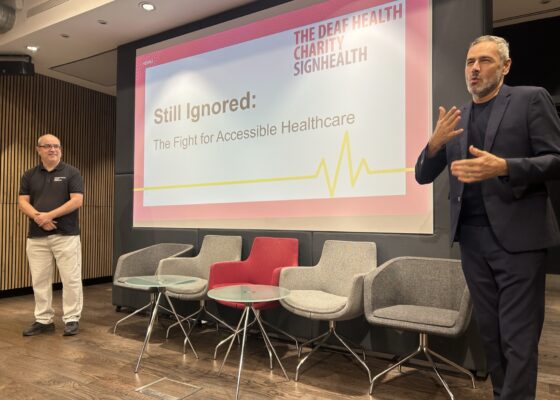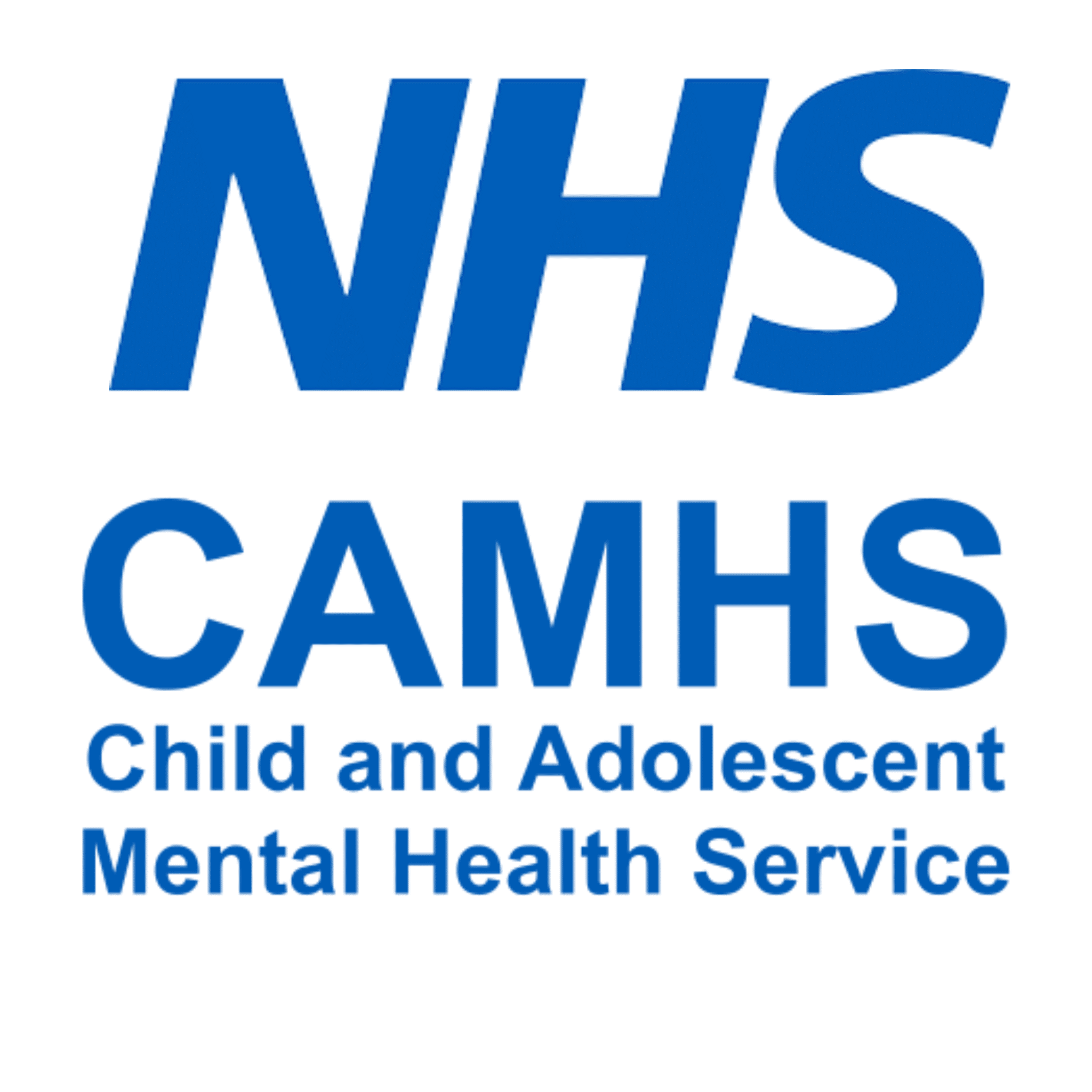
Service Training and consultancy from SignHealth
Make your service more accessible for deaf people with one of our workshops or bespoke support packages.

SignHealth provides a psychological therapy service for deaf adults delivered in British Sign Language (BSL). All of our trained therapists are fluent BSL users.
We are the only NHS therapies service for deaf people with anxiety and depression.
NHS therapies for deaf people (Talking Therapies) will cater for people who use British Sign Language (BSL). For deaf people who do not use BSL, we can provide some types of therapy such as bereavement counselling and generic counselling but it is dependent on funding requirements.
Clients must be aged over 18 and living in England or Wales. We match deaf people with a therapist to suit their needs and we can support those experiencing:
We offer Step 2 and Step 3 therapy, as well as having some secondary care Step 4 clinical psychology available. Our range of treatments and interventions are tailored to suit the patient’s needs. These services can be delivered either face-to-face or online.
Depending on circumstances and availability, we may be able to offer:
This typically lasts one hour once a week in a private room. We try and use a therapy room as close as we possibly can in a range of different venues.
Patients can talk one-to-one with a therapist in BSL, using secure video calls. Online messaging is used to support the sessions, for example, if it is necessary to share a link or if the patient does not understand a sign. The patient will have a one-hour video call with a therapist each week. This may be for an agreed number of sessions or ongoing. We schedule a video chat test before the first online therapy appointment to ensure that the patient is able to get online.
Our online Cognitive Behavioural Therapy (cCBT) course in British Sign Language (BSL) is focused around anxiety and depression. The four to six week course features subtitled BSL videos, with each session lasting between 30 and 60 minutes. There will also be tasks to do between sessions e.g. keeping a diary, practising new behaviours.
Our team of qualified therapists have the skills and cultural understanding to provide one-to-one therapy for deaf people. All our therapists are fluent BSL users. Some can also support deaf people who do not sign. This improves communication and makes it easier for the patient and the therapist to form a relationship.

We’re heading to the political party conferences this autumn. Our team will be at the Labour, Liberal Democrat, and Conservative conferences, making sure that deaf people’s experiences and priorities are included in national conversations. We’ll … Continued

Survey for deaf or CODA children and young people about National Deaf CAMHS. Tell us about how to improve mental health support from this service.

Survey for parents and carers of deaf or CODA children and young people about National Deaf CAMHS.
Deaf people are more likely to experience mental health such as depression and anxiety compared to hearing people. This situation is exacerbated by the difficulty we face in accessing psychological therapy. When we visit health services we often experience communication barriers which can make our symptoms worse.
Research suggests that the best treatment for people with mental health such as depression and anxiety is ‘talking therapy’. This therapy method relies on 1-1 communication, but for deaf people who communicate in BSL, this is problematic. The moment an interpreter is involved, the conversation becomes less intimate and less effective for the patient.
Please contact us if you would like more information about our service before making a referral.
Text 07984 439473
Email therapies@signhealth.org.uk
Call 07966 976747
If you are deaf and interested in therapy with SignHealth, please fill in this self-referral online form.

Make your service more accessible for deaf people with one of our workshops or bespoke support packages.

Campaign resources to support health services with improving access to healthcare for deaf people.

Since 2016, the Standard has aimed to improved communication and access in the NHS and adult social care services.

Find a registered interpreter in your area.